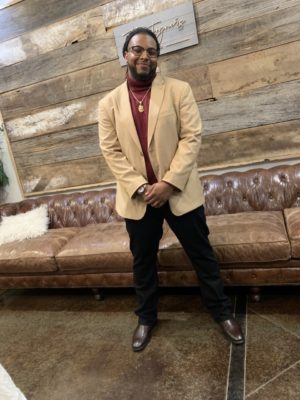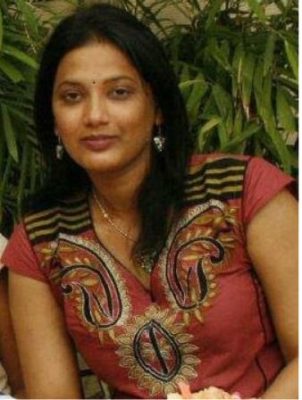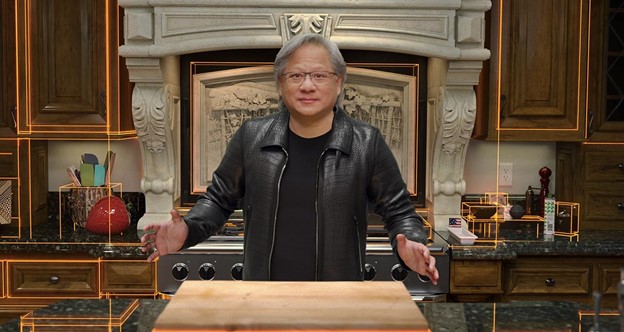Seventy-five students from Houston Community College’s new two-year artificial intelligence program will attend NVIDIA’s GTC conference next month.
Calling it “the greatest field trip of all time,” the program’s coordinator, G. Raymond Brown, sees it as a way to bring students in the program up to speed fast.
The program at HCC, launched in August 2020, aims to get skilled workers into Houston’s booming job market. HCC reaches more than 110,000 students per year, making it one of the largest and most diverse two-year public colleges in the United States.
“We’ve found GTC to be a marvelous resource,” said Brown, who first sent students to the conference in April. “Being virtual has made an enormous difference for us.”
Bringing More Skills to More Workers
GTC is one of the premier events in AI, accelerated computing, autonomous vehicles and robotics.
Before the COVID-19 pandemic, the conference brought together innovators from various industries at events in Silicon Valley and around the world.
But GTC went virtual in 2020 as the COVID-19 pandemic took hold.
When that happened, Brown and USAi Labs, a Houston nonprofit developer network specializing in mentoring, education and intelligence-based R&D, sprang into action.
With the bulk of the conference free, and no need to worry about a travel budget, GTC’s lineup of speakers, training sessions and keynotes could become an invaluable resource.
That’s what Brown — who holds a Ph.D. in physics from Duke University and is known as “Doc Brown” — was looking to add to HCC’s AI program.
The cost of tuition at four-year colleges in the United States has never been higher, leaving many students with enormous debts.
At the same time, worldwide demand for AI skills is surging.
And there are a vast number of opportunities in Houston, America’s most diverse city, with its medical, aerospace, oil and gas, and technology industries, Brown said.
Brown, who has worked in private industry and as a physics professor at four-year colleges, knows this territory well.
 Two years ago, he saw an opportunity for an affordable two-year college program at HCC that could make a difference by engaging a broad population of students.
Two years ago, he saw an opportunity for an affordable two-year college program at HCC that could make a difference by engaging a broad population of students.
The goal: prepare them for jobs as AI support specialists who can help enterprise teams put the latest AI technologies to work.
As a result, Brown’s students are already busy.
He said that many already have part-time jobs and side gigs, even before his nascent program has graduated a single student.
One student, Denzel Wilson (left), spent the summer at Rice University, helping graduate students and faculty in bio-genomics put AI techniques to work to advance their research.
Another student recently gave a presentation on the latest AI techniques at the Pumps and Pipes meetup. It brings Houston’s world-class oil and gas engineers together with members of the region’s medical community to exchange ideas.
Brown says such opportunities can be the first rung on the career ladder for his students, many of whom are from disadvantaged backgrounds.
And many employers are eager to pay for more training and education for new hires, letting students accumulate in-demand skills rather than debt.
 Others, such as Neethi Anand Gangidi (right), who already holds master’s degrees in chemical engineering and subsea engineering, see HCC’s AI program as a way to swiftly add practical AI to their skill sets.
Others, such as Neethi Anand Gangidi (right), who already holds master’s degrees in chemical engineering and subsea engineering, see HCC’s AI program as a way to swiftly add practical AI to their skill sets.
Digging In
In the spring, Brown added GTC to three of the program’s courses — History, Theory and Platforms 1370, Machine Learning in AI 1371, and Computer Vision in AI 1378 — in two course modules with assignments, discussions and presentations.
Some courses in the program even make use of teaching kits from NVIDIA’s Deep Learning Institute.
Brown reports students dug right in, starting with NVIDIA CEO Jensen Huang’s keynote. Some students, like Gangidi, sat in on dozens of sessions across a wide variety of industries.
“Having the opportunity to learn what’s going on in the AI industry is really awesome,” Gangidi said.
From there, students chose sessions that piqued their interest. Brown reports that many were overwhelmed in the first few days, but they soon got their bearings.
They began to pick up on who was influential in the world of AI. They started to understand trends in the field better. And they got a broader perspective on the growing number of industries it’s reshaping, Brown reports.
“There are just so many things to take in,” said Wilson, who is taking courses at HCC while he works as a laboratory assistant.
One of the most valuable lessons students learned from seasoned pros working in AI is that it’s a process rather than a product.
“Most of the kids were surprised,” Brown said. “Most students believe everything should work out of the box. They don’t realize that good AI is a matter of gradually getting to the right answers, not an instant answer.”
Brown’s eager to send students back for more. For next month’s GTC, he’s expanding the amount of coursework built around GTC.
“We want our students to see themselves as the professionals they are becoming,” Brown said. “That starts with inclusion in events like GTC.”
